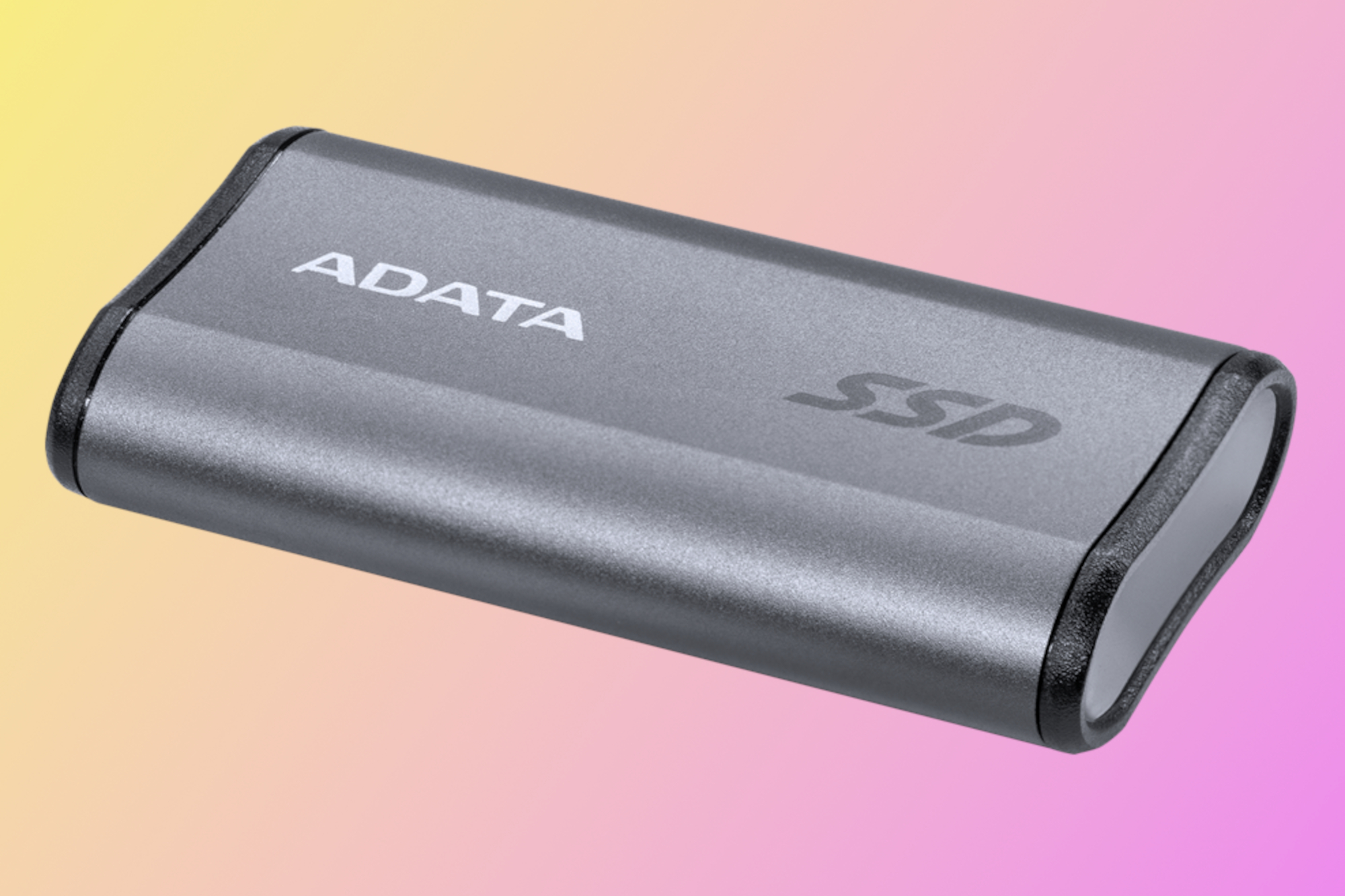Expert's Rating
Pros
- Super svelte
- Good 20Gbps performance
- Available in up to 4TB in capacity
Cons
- Slower than much of the competition
- Not much of a looker
Our Verdict
Though it’s hardly the fastest 20Gbps SSD we’ve tested, the XS2000 is fast enough, fits easily in any pocket, and is available with up to a whopping 4TB in capacity. All without breaking the bank.
Best Prices Today: Kingston XS2000 USB SSD
Though it’s not quite as tiny or as fast as the recently reviewed Adata Elite SE880, the Kingston XS2000 is small and a decent 20Gbps USB performer. It’s also available in the larger 2TB/4TB capacities that the SE880 is not. If you need lots of capacity, the XS2000 is about the cheapest 20Gbps path to a solution we’re aware of.
Note: Kingston sent us a improved version that solved the read performance issue suffered in the original testing. It was still slow in the 450GB write however.
This review is part of our ongoing roundup of the best external drives. Go there for information on competing products and how we tested them.
Kingston XS2000: Price and specs
The XS2000 is available in 500GB/$75, 1TB/$160, 2TB/$285 (tested), and 4TB/$500 flavors from Kingston. It’s also available from other sources at a decent discount. It features a Type-C connector and rubberized sock (packaged separately) for additional shock protection.
The drive is USB 3.2 2×2, aka SuperSpeed USB 20Gbps, or as we like to say: 20Gbps USB. Kingston includes a Type-C to Type-C cable.
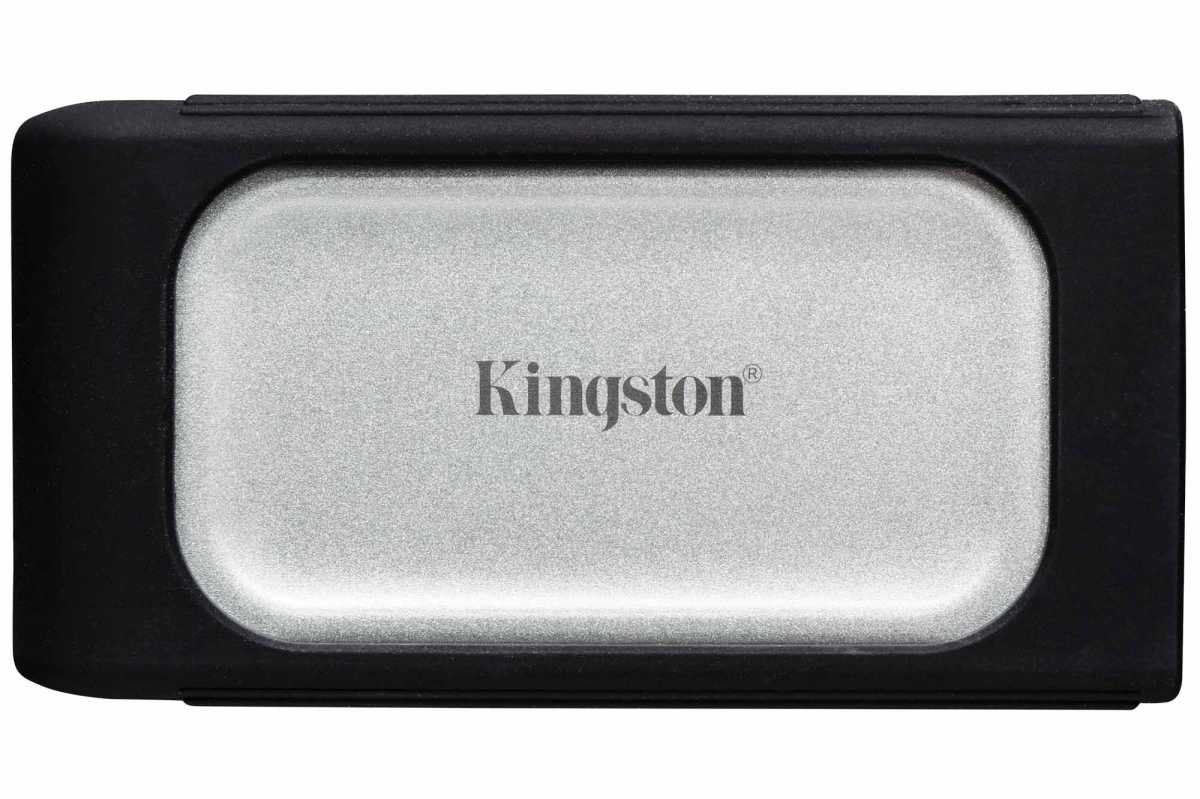
Kingston was mum on the exact type of NAND inside, but did admit that it’s 3D TLC (Triple-Level Cell, 3-bit). We’d guess lots of layers, seeing as it’s available in 2TB and 4TB flavors. The internals are NVMe, as SATA would not be able to deliver anywhere near the performance that the XS2000 reaches.
Kingston XS2000: Performance
The Kingston XS2000 isn’t the fastest 20Gbps USB SSD we’ve tested, especially at writing data, but that’s comparable to saying it’s not the fastest Corvette. It’s still greased lightning compared to 10Gbps drives for most everyday tasks.
Note that the Samsung T7 Shield in the charts below is a 10Gbps USB drive, and a fast one. It’s included merely to draw a distinction between 10Gbps and 20Gbps performance. That said, it didn’t lose by all that much to the XS2000 in the sustained writing portion of CrystalDiskMark 8, and beat it in the 450Gb write. These tests were not the XS2000’s finest moments.
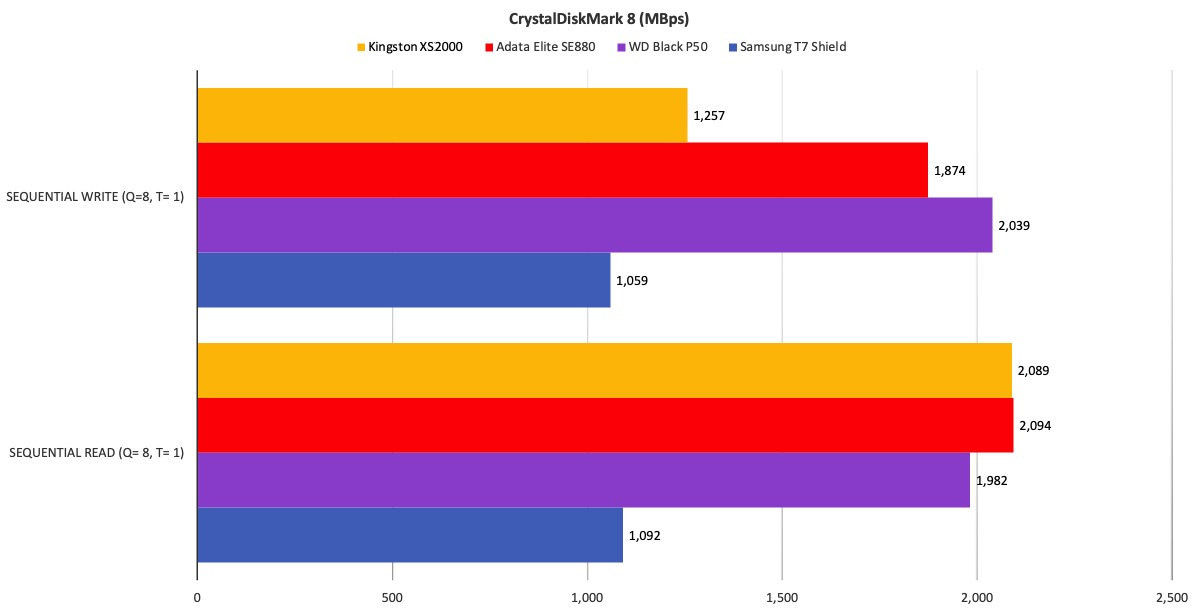
The XS2000 falls off the pace writing, but is a very fast reader. If your workload is read heavy, you’ll love it. Write heavy… not so much.
Jon L. Jacobi
In our 48GB transfer tests the XS2000 was quite a bit slower overall than the SE880, largely because of its slow writing.
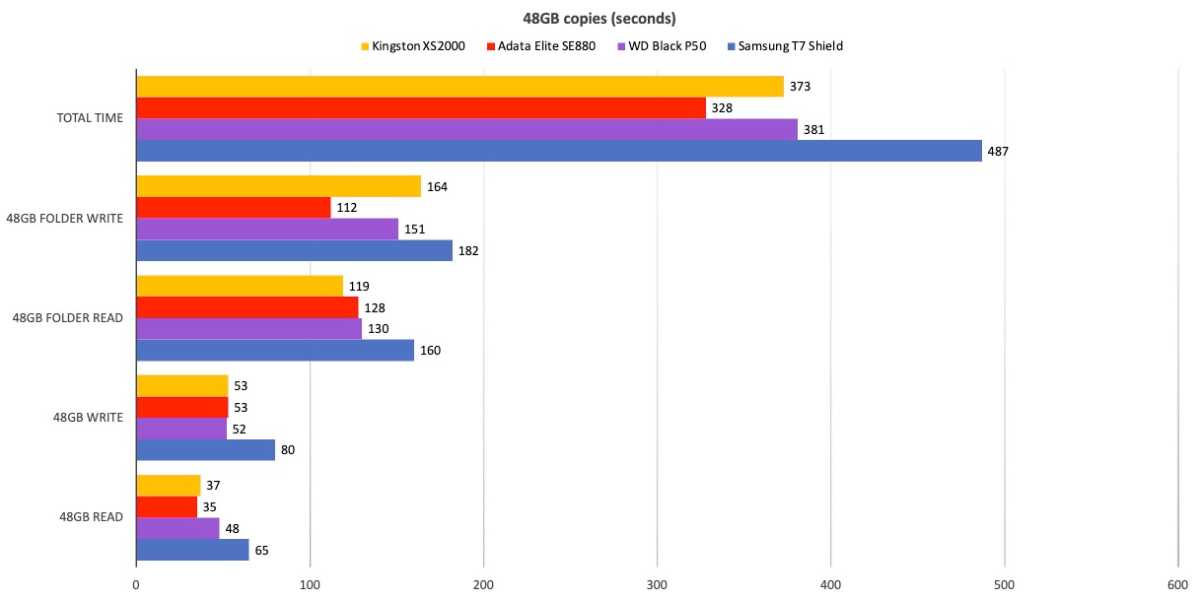
The Kingston XS2000 again fell well short of the rival Adata Elite SE880. Mostly due to the slower write pace.
Jon L. Jacobi
However, the XS2000 did beat out its Adata rival by a substantial margin in our single 450GB file write test. This is usually indicative of faster NAND, but secondary caching comes into play as well. Having 2TB to play with allows the XS2000 to utilize more NAND as SLC secondary cache.
The SE880 was only a 1TB drive, consequently with less secondary cache to play with. The WD Black P50 is marketed as a gaming drive and has exceptionally fast sustained writes. The T7 utilizes superior caching to do an amazing job sustaining write performance, albeit at a slower rate initially.
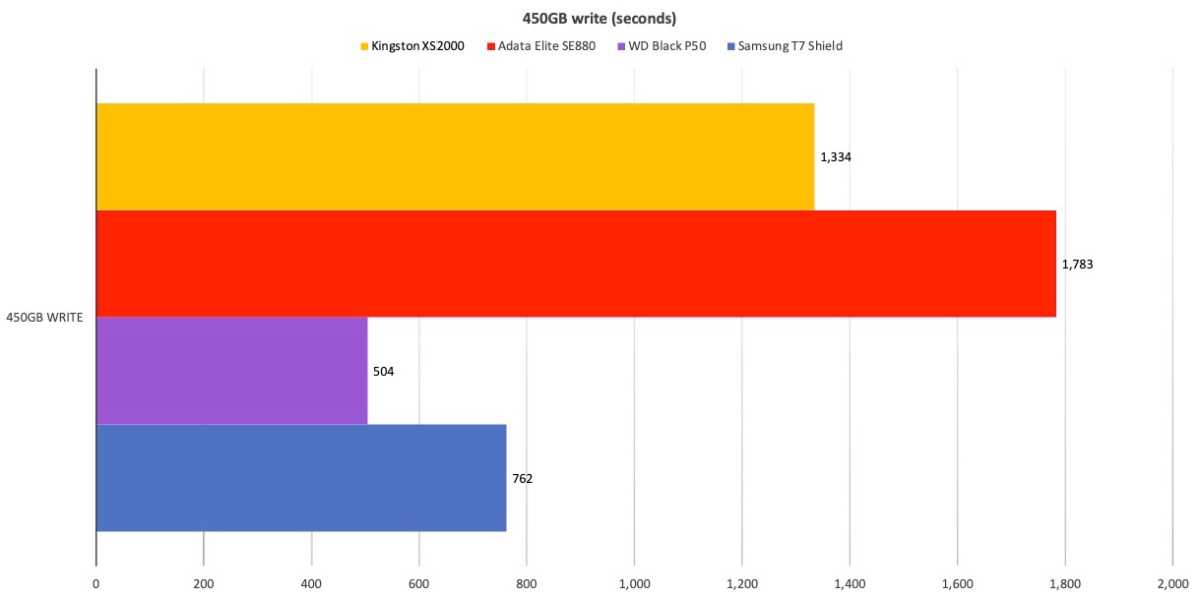
Finally the Kingston XS2000 bested the Adata Elite SE880, though it had a distinct advantage with 2TB of capacity (more NAND for secondary cache) over its rival’s 1TB. One of the XS2000’s advantages is that it’s available in 2TB/4TB capacities.
Jon L. Jacobi
Obviously, the Kingston XS2000 is not the fastest 20Gbps drive on the block. In our book, it’s fast enough for the average user. Especially as sustained writes are generally the least common operations. Still.
External USB drive tests currently utilize Windows 11 64-bit running on an MSI MEG X570/AMD Ryzen 3700X combo with four 16GB Kingston 2666MHz DDR4 modules, a Zotac (Nvidia) GT 710 1GB x2 PCIe graphics card, and an Asmedia ASM3242 USB 3.2×2 card. Copy tests utilize an ImDisk RAM disk using 58GB of the 64GB total memory.
Each test is performed on a newly formatted and TRIM’d drive so the results are optimal. Over time, as a drive fills up, performance will decrease due to less NAND for caching and other factors. The performance numbers shown apply only to the drive of the capacity tested. SSD performance can vary by capacity due to more or fewer chips to shotgun reads/writes across and the amount of NAND available for secondary caching.
Bottom line
The Kingston XS2000 isn’t going to win any beauty contests, or a bare-knuckle performance fight. But it is super small, affordable, and fast enough. It’s also available in the 2TB and 4TB capacities that many super-portable SSDs are not. A solid product that can be found at attractive discounts.



